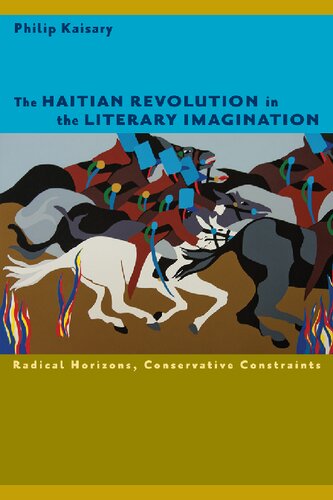

Most ebook files are in PDF format, so you can easily read them using various software such as Foxit Reader or directly on the Google Chrome browser.
Some ebook files are released by publishers in other formats such as .awz, .mobi, .epub, .fb2, etc. You may need to install specific software to read these formats on mobile/PC, such as Calibre.
Please read the tutorial at this link: https://ebookbell.com/faq
We offer FREE conversion to the popular formats you request; however, this may take some time. Therefore, right after payment, please email us, and we will try to provide the service as quickly as possible.
For some exceptional file formats or broken links (if any), please refrain from opening any disputes. Instead, email us first, and we will try to assist within a maximum of 6 hours.
EbookBell Team

4.3
18 reviewsThe Haitian Revolution (1791–1804) reshaped the debates about slavery and freedom throughout the Atlantic world, accelerated the abolitionist movement, precipitated rebellions in neighboring territories, and intensified both repression and antislavery sentiment. The story of the birth of the world’s first independent black republic has since held an iconic fascination for a diverse array of writers, artists, and intellectuals throughout the Atlantic diaspora. Examining twentieth-century responses to the Haitian Revolution, Philip Kaisary offers a profound new reading of the representation of the Revolution by radicals and conservatives alike in primary texts that span English, French, and Spanish languages and that include poetry, drama, history, biography, fiction, and opera.
In a complementary focus on canonical works by Aimé Césaire, C. L. R. James, Edouard Glissant, and Alejo Carpentier in addition to the work of René Depestre, Langston Hughes, and Madison Smartt Bell, Kaisary argues that the Haitian Revolution generated an enduring cultural and ideological inheritance. He addresses critical understandings and fictional reinventions of the Revolution and thinks through how, and to what effect, authors of major diasporic texts have metamorphosed and appropriated this spectacular corner of black revolutionary history.